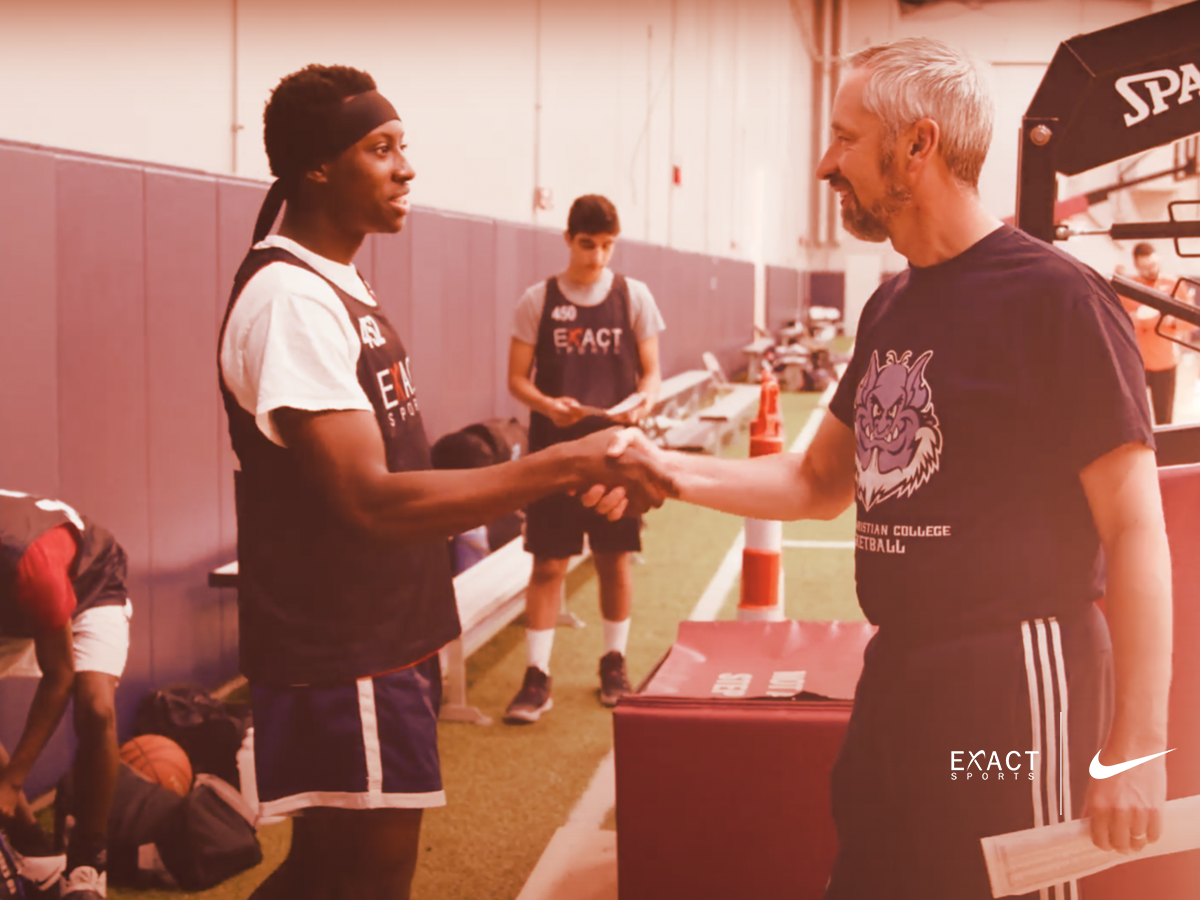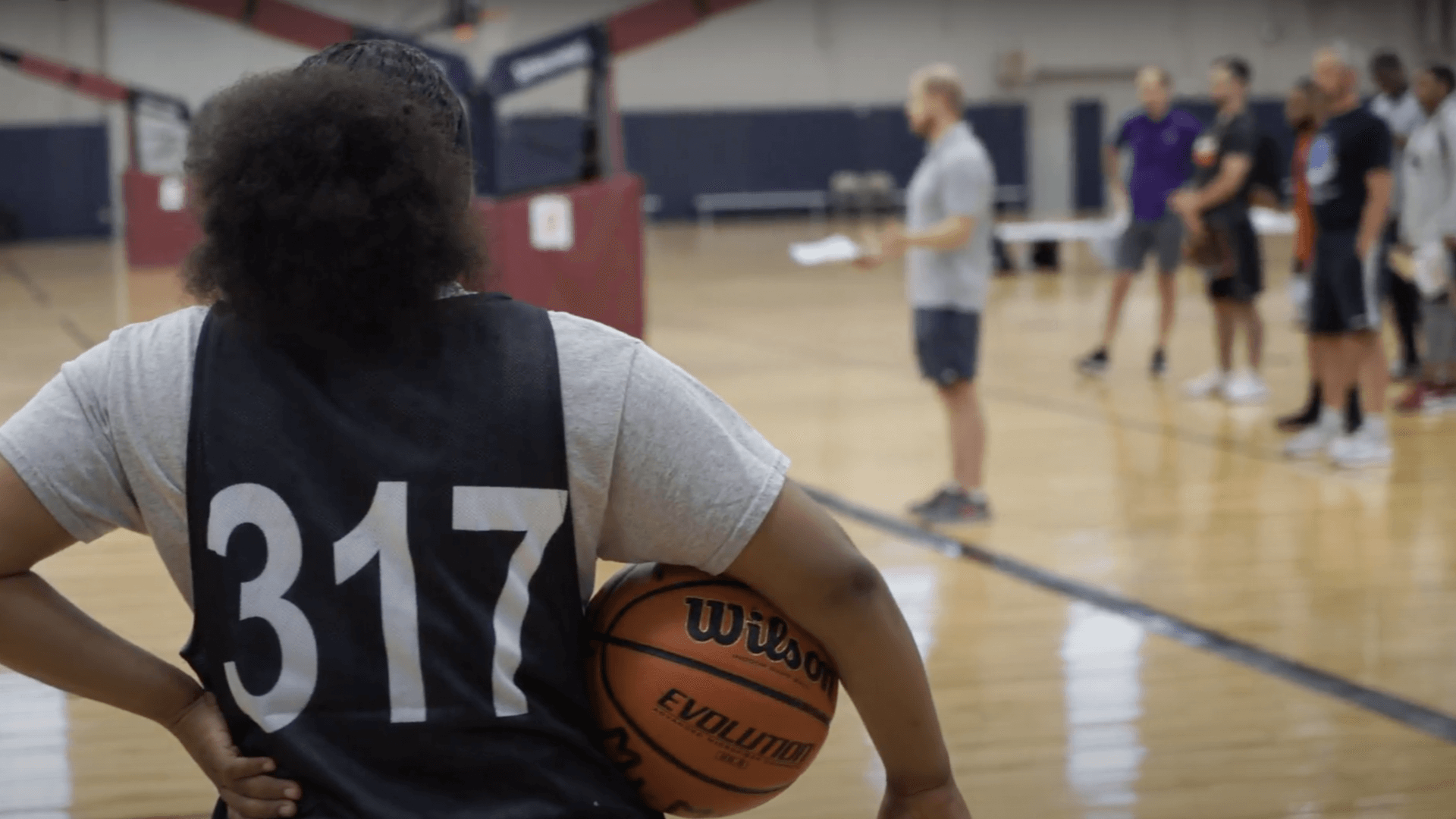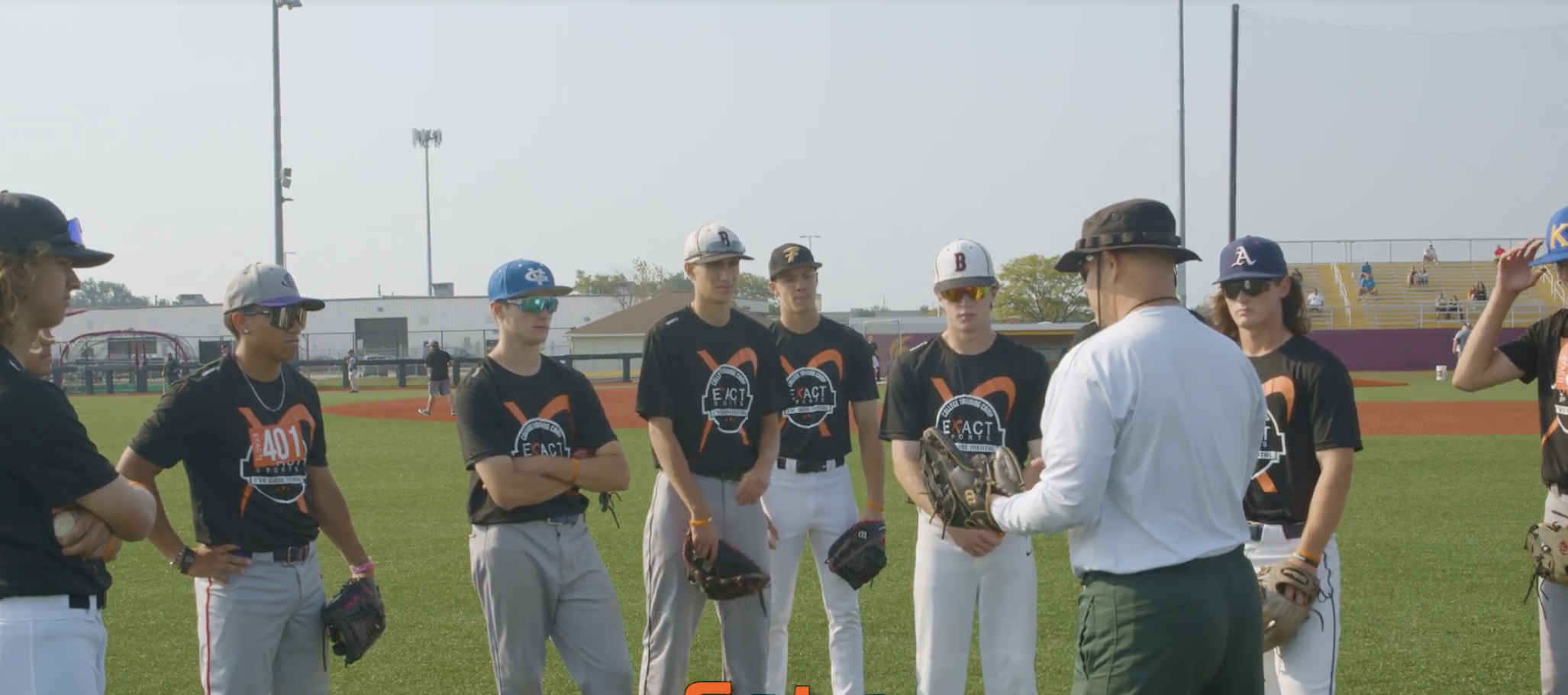
Writing Emails To College Coaches
The recruitment process into college sports is a long and intentional one that requires you to reach out to coaches early, make the initial contact, and stay in touch throughout the recruiting process. If you're a student-athlete looking to play collegiate sports, you've probably been told that contacting college coaches is a must.
- How do I contact a college coach?
- What do I say when I make contact with a college coach?
- Are there rules—dos and don'ts—when contacting college coaches?
- How many emails will I have to send before I become a college recruit?
- What are the key factors that affect my chances of success after contact?
Rest assured; we'll be answering these questions and offer you a detailed guide on how to email college coaches for recruitment.
How It All Begins…
It might interest you to know that the college recruiting process is first initiated by the student player, not the college coach. Here is the recruiting process for college coaches and it consists of five simple steps:
Step 1: Coaches compile a list of prospective athletes.
Step 2: Coaches distribute ID camp invitations, athlete questionnaires, and recruiting letters to those student-athletes.
Step 3: Coaches conduct one-on-one athlete evaluations.
Step 4: Coaches confirm any verbal offers, commitments, or scholarship to the recruit.
Step 5:Coaches look to recruit top athletes to better their team and overall program.
And that's it! Even so, the young athlete has a significant role to play when determining whether or not they make it to the signing stage in the recruitment process.
What Recruiting Really Means
College recruitment is simply a process whereby a college representative, usually a college coach, identifies, assesses, and offers a student-player the chance to play sports for the college they represent. It's extremely important to understand how college recruiting process if you are an aspiring college athlete so that you can master the do's and don'ts of college recruiting.
Why Emailing a College Coach Is Important
“Do I really need to email a college coach?”
Yes, we advise that you do. As mentioned earlier, the majority of the time, players are the ones who initiate the college recruiting process.
The collegiate recruitment process varies across different levels and organizations, and contacting a college coach may move you forward in the recruitment process.
EXACT has contacted several D1, D2, and D3 college coaches for feedback on the recruitment processes. In our years of interaction with these professionals, we've learned that the best way to make first contact with a college coach is by emailing them. You can then send follow-up emails and/or make phone calls once you establish a rapport with that college coach.

When Should You Start Emailing College Coaches?
Right away! The college selection process is not a quick process or one that should be rushed. So the earlier you set out, the better.
The recruiting calendar may differ from sport to sport and most NCAA Division I and Division II sports do not permit coach-to-player contact until June 15, after their sophomore year of high school. However, the rule binds college coaches, not student-players. It's never too early for a student-athlete to contact a coach. In fact, the earlier you make contact, the better, which is why being proactive and sending a compelling email is very important.
It is recommended that a typical highschool athlete begin the college research process by their junior year, which is around the time when SAT and ACT tests begin. If you're looking to play sports in college, your best bet is to make contact with coaches during your sophomore year in high school or by junior year at the latest. DI schools are on the lookout for younger players and often recruit players as soon as it's legal; in the ninth grade of high school.
Can I Contact College Coaches On Social Media?
No, not at all! Sending a text message or contacting a college coach on social media is not advisable. It is unofficial, unprofessional, and should be avoided. Stick to emails, phones calls, and in-person/virtual meetings.
What To Email A College Coach
When writing an email to a college coach, you want to put your best foot forward and make a strong impression. Here's a complete guide to crafting emails that college coaches actually read.
The Subject Line
Craft an excellent subject line. You're an athlete, not a writer—we get that. But remember, the subject line is what the coach sees first and determines whether or not your email gets opened in the first place. Your skills on the field or court might never be seen by your desired college if you don't take that extra moment to fine-tune your subject line.
Your subject line should be informative and direct to avoid any confusion. Be sure to include the following in your headline:
- Your full name
- Your graduating class year
- Your athletic position(s)
You may also add in an intriguing fact about yourself. What you add in may vary depending on what college you're applying for and what piques the coach's interest.
Adding in your city and state, though optional, is also a good idea.
Subject Line Tips
- Make your subject line informative as well as intriguing.
- Avoid using generic subject lines; they are unlikely to catch the coach's attention.
- Limit your subject line to 50 characters or less. Keep it short and sweet!
- A college coach may choose to leave a message unopened just like you sometimes leave some emails unopened for days, weeks, or even months because they don't interest you. So, help the coach know what the message is about by writing a compelling subject line.
Subject Line Examples
Football (in an academic-focused college): Steve Crane 2023 Grad 3.8 GPA 1400 SAT Highlight Video Included
Baseball (Pitcher): Steve Crane 2026 Grad 5'9'' 172lbs 6.75 60-yard dash Skill Video Included"
Basketball: Steve Crane 2022 Grad 6'4'' References Included

Show That You Did Your Research
This could make a great impression—showing your coach that you're truly interested in the program and have carried out adequate research. In a sentence or two, mention a recent fact or statistics about the team and express how that relates to you and/or your application.
Example:
“I recently read an article on collegiate sports and academic performance and saw that your program had the best overall performance in both sports and academics. I'm delighted to see other players who are dedicated to all-round excellence, as I'm dedicated to bettering my game and excelling in academics.”
Quick Tip: Make it short and ensure that what you're saying is true and from a credible source.
Introduce Yourself
A key function of the email is to introduce yourself—this way the coach can get to know you. Put out that valuable info that every college coach wants to know. Express concisely who you are and why you're sending the email.
Information to include:
- General Bio: Full Name, graduation year, club name and/or high school and location
- Academics: Test scores, GPA.
- Athletics: Player stats, notable wins/ titles, highlight and/or skills reel
- Contact Information: Your contact information and your highschool/club coach's contact
Invite the College Coach to Come See You in Action
Remember, you're sending the email hoping to become a signed athlete at college, not merely to introduce yourself. So, give a strong call to action. Let the coach know your upcoming game schedule and where they can watch you play first-hand. This could be at one of your games and/or an ID camp.
You may also include a link to a video of yourself in action during a game. This should preferably be a snippet from a game, say 10-15 seconds, as most coaches don't have the time to watch an entire game so be sure to only show your best.

Personalize Each Email
Be sure to do your research ahead of time so that you can demonstrate your knowledge throughout the email that you send. Above all, your email should reflect your interest and desire to be a part of the college program.
Include the Contact Information of Your Club/Highschool Coach
When it comes to collegiate sports recruitment, there are rules governing how coaches can interact with student-players. NCAA recruiting rules prohibit college coaches from communicating with athletes or their parents/guardians until June 15, after their sophomore year, or September 1, of their junior year, depending on the sport. However, coaches can communicate among themselves. This means that though a college coach may be unable to communicate with you on recruitment, they can at least reach out to your highschool and/or club coach.
Avoid Saying Too Much
It's an email, not a biography. Give the important information that might pique the college coach's interest and prompt them to watch you play at an upcoming game and/or ID Camp. Don't get caught up in the personal achievement lists. The purpose of the email is to establish rapport and secure you a chance for a follow-up.
Do In-Depth Research
Before you dash off to download a list of all women's soccer coaches from the NCAA website, take some time to do quality research. There are numerous programs, many of which are not a good fit for you. So, before you set out and start emailing college coaches, Answer these important questions:
- Is college tuition financially feasible for you and your family?
- What's the program's history: awards, championships, winning percentages, etc.?
- What’s the campus culture like?
- Does the school offer a major that interests you?
- How many players in your position are already on the team?
Doing adequate research is especially important because while sports will be a key part of your college experience, it is only a part of it. Academics, college culture, and extracurricular activities are all key factors to consider when making your decision.
Use A Dedicated Email Address
Writing an email to your coach is an official thing. Don't use a casual email address. Your email address should be your full name followed by your graduation year, for example, [email protected] or [email protected].
Avoid using comical and playful email addresses, such as [email protected] or [email protected]. Non-professional email addresses do not depict your love for the game. On the contrary, they create the impression that you're immature and unserious, which is enough reason to have your email sent to spam.
Do A Proper Grammar Check
This is not an email you type quickly on-the-go and simply hit send without reviewing. Use efficient writing tools to proofread and edit your email. It's also great to get a second opinion from your teacher, parent, or friend with experience..
Follow Up
After sending the first email in which you introduce yourself to the college coach and express your interest, you still have a lot more communication to do. It's not time to sit back and watch it all unfold. If you sit back, you'll likely see nothing unfold.
Your follow-up email is just as important as the introductory email. As a rule of thumb, once you initiate contact with a college coach, don't stop communication until you're expressly told that there's no space for you on the team. Is this to say, spam the coach with numerous repetitive emails? No, but an email once a month isn't going overboard.

Frequently Asked Questions
Can College Coaches Respond to Emails?
College coaches may respond to emails when they are interested in a player and are not prohibited from doing so by the NCAA rules. However, note that oftentimes, college coaches do not respond to emails from prospects, not because they are not interested in the student-athletes, but because there are regulations guiding the interactions of coaches and students that they must not violate.
When Is the Best Time to Email College Coaches?
There's no single best answer as to when to send an email to college coaches. But, here are some key factors to consider.
The General Rule
A basic rule is to avoid sending emails late at night or in the wee hours of the morning. That is, don't send emails between 11:00pm and 6:00am in the college coach's respective time zone. And of course, if you have established a rapport via phone calls, you can not call during this time period either.
Season or Not
Sending an email to a coach in-season is often not the best idea. In the season, coaches are busy with games and practice, and their focus is to help the team play their best. This is not to say you can not send an email in season-just take their game schedule into account.
Practice Time
A college coach will surely not skip practice to read a bunch of emails. So having an idea of when practice is will help you in deciding the best time to send your email.
We suggest that you send emails to college coaches between 4:00 p.m. and 8:00 p.m. That way, they can view it before practice or later at night.
How Long Does it Take for a College Coach to Respond to an Email?
On average, it takes about two weeks to get a response from a college coach when you're on their priority list. However, a coach may respond later or sooner depending on their personal and/or professional schedules.
What Does it Mean If I Don't Get a Response from the College Coach?
College coaches often get hundreds of emails weekly. So, it'll take more than a single email to be noticed by a coach. However, if even after sending multiple emails, you don't get a response, it doesn't necessarily mean the coach isn't interested in you. NCAA rules may dictate they can’t reach out to you. This is why you should include your high school and/or club coach's contact information when sending an email to a college coach so they can communicate with one another.
Bottom Line
Sending an email to college coaches is the first step in securing a position in collegiate sports. So, be deliberate about doing it right.
Keep in mind that beyond the email you send, college coaches want to see you play. At EXACT College ID camps, we offer you the opportunity of meeting thousands of college coaches from across the country where you can make impactful connections, receive college-style training and receive one-on-one college evaluations. Be college recruit ready and request your invitation to an upcoming EXACT College ID Camp.
